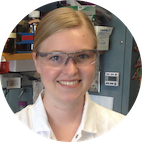-
-
- Transfer Credit
- Online Learning
- Events
-
-
-
- Academic Services
- Course and Program Information
- Student Aid
-
-
-
Berkeley Global
Learn about recent scientific advances and emerging technologies in molecular and cell biology, neurobiology, genomics, immunology and infectious disease. Read current scientific literature, and learn how to analyze experimental data and critically evaluate the impact of research findings. Participate in classroom discussions and student presentations to enhance your ability to discuss some of the exciting scientific advances being published today. This course is intended for advanced science students with some previous knowledge of cell biology, molecular biology and genetics. Industry professionals and health professions students can also benefit from this course.
Prerequisites:
A year of general biology for majors and a basic knowledge of PowerPoint
Loading...
Sections
Fall 2025 enrollment opens on June 16!
This course applies to the following programs:
Advanced Biosciences Program
Expand or collapse section
Required Courses
- Current Topics in the Biosciences
Electives
- Biochemistry
- The Biology of Human Cancer
- Cell Biology
- Developmental Biology
- Endocrinology
- Genetics
- Genomic Medicine
- Hematology
- Human Nutrition
- Immunology
- Introduction to Biostatistics
- Introduction to Human Physiology
- Introduction to Human Physiology
- Introduction to Parasitology
- Medical Microbiology
- Biochemistry
- Mammalian Systemic Physiology
- Neuroscience
- Physiology of the Cardiac and Respiratory Systems
- Molecular Cell Biology
- Pharmacology
- Principles of Infectious Diseases and Emerging Infectious Diseases
- Principles of Molecular Biology
- Quantitative Analysis: Applications in Clinical Chemistry
- Stem Cell Biology, Research and Discovery
- Virology
- Principles of Toxicology
- Microbiology Laboratory
- Virtual Hematology Laboratory
- Pathophysiology
- Exercise Physiology
- Biology of Aging
Course of Related Interest
Post-Baccalaureate Health Professions Program
Expand or collapse section
Required Courses
- Health Careers Seminar I
- Health Careers Seminar II: The Application Process
- Health Careers Seminar II: Developing Your Personal Statement
- Health Careers Seminar II: Interviewing Successfully
Basic Biology Electives
- General Biology I
- General Biology Laboratory I
- General Biology II
- General Biology Laboratory II
- Introduction to Human Physiology
Upper-Division Biology Courses
- Biochemistry
- Human Physiology Laboratory
- Mammalian Systemic Physiology
- General Human Anatomy
- Human Anatomy Laboratory
- Medical Microbiology
- Microbiology Laboratory
- Introduction to Biostatistics
- Biology of Aging
- The Biology of Human Cancer
- Cell Biology
- Current Topics in the Biosciences
- Developmental Biology
- Endocrinology
- Exercise Physiology
- Genetics
- Genomic Medicine
- Hematology
- Virtual Hematology Laboratory
- Human Nutrition
- Immunology
- Neuroscience
- Physiology of the Cardiac and Respiratory Systems
- Principles of Molecular Biology
- Molecular Cell Biology
- Introduction to Parasitology
- Pathophysiology
- Pharmacology
- Principles of Infectious Diseases and Emerging Infectious Diseases
- Stem Cell Biology, Research and Discovery
- Principles of Toxicology
- Virology
- Medical Terminology
Chemistry Electives
- Biochemistry
- General Chemistry I
- General Chemistry Laboratory I
- General Chemistry II
- General Chemistry Laboratory II
- Organic Chemistry I
- Organic Chemistry Laboratory I
- Organic Chemistry II
- Organic Chemistry Laboratory II
- Quantitative Analysis: Applications in Clinical Chemistry
Physics Electives
Math Electives
Other Electives
- Spanish for Medical Professionals
- Principles of Epidemiology
- Ethical and Legal Issues in Health Care
- Developmental Psychology Across the Lifespan
- Abnormal Psychology
Test Preparation Courses
- Post-Bacc MCAT Prep
- Post-Bacc GRE Prep
- Post-Bacc DAT Prep
- Post-Bacc OAT Prep
- Post-Bacc PCAT Prep
- TPR DAT Prep
- TPR MCAT Prep
Notes
Departmental contact for academic questions:
Classroom sections: extension-science@berkeley.edu
Online sections: extension-science-online@berkeley.edu
Testimonials

“I took Immunology and Current Topics in the Biosciences, which were both very informative, useful and enjoyable. They were structured much like you would expect in a classroom-based course with new material and homework for each lesson, along with quizzes and final exams or projects. The courses were user-friendly and included a variety of learning materials. Instructors were very responsive to questions and provided helpful feedback on all assignments. It was convenient to learn the material and submit assignments from home—or the coffee shop, library, airport terminal or wherever life dictated at the time.”
Instructional Types
- Live Online
- Live Online courses provide an interactive learning experience with scheduled synchronous online sessions held via Zoom video conferencing (Pacific Time). Learn more about the Live Online format.
- Online, Start Anytime
- Continuous enrollment course begins when you enroll. You have a minimum of 90 days and a maximum of 180 days to complete the course.
- Online, Fixed Date
- Enroll in this course by its start date and complete it by its specified end date. There are no live sessions, but plenty of opportunities to collaborate with your classmates and instructor.
- Classroom
- Take classes in-person at one of our buildings or partner locations.
English Language Proficiency Requirements
All of our courses are taught in English. If English is not your first language, please use the following test scores as guides in order to be successful:
- TOEFL: 90
- IELTS Academic Format: 7
- DAAD: C1
- TEM-4 or TEM-8: Level 70
- Duolingo: 125
Note: You do not need to submit test scores.
